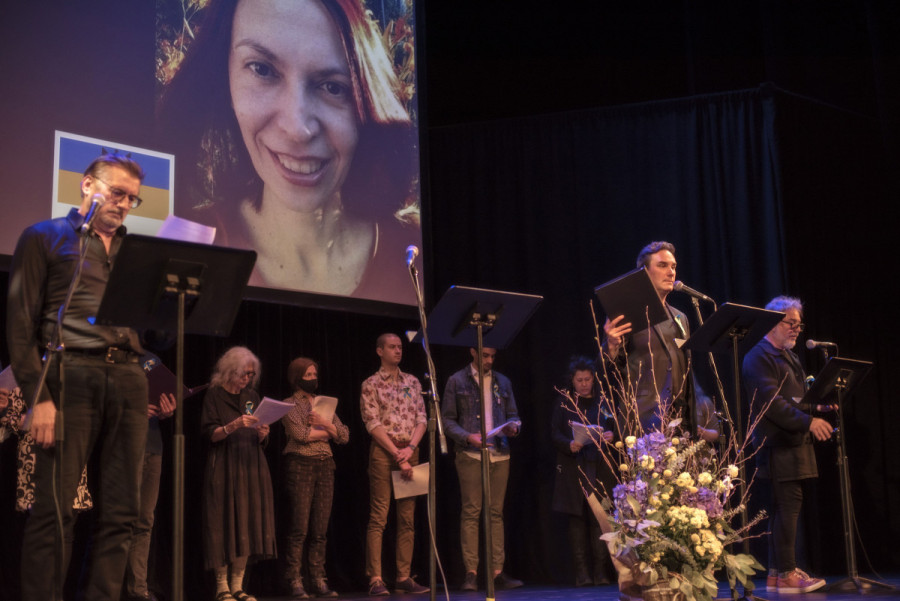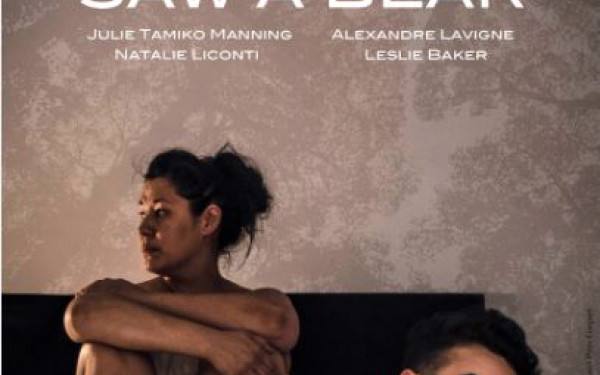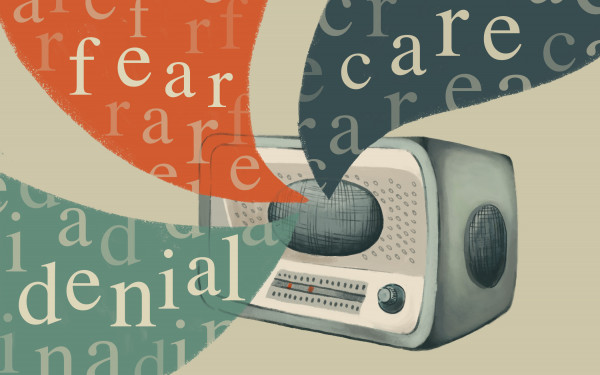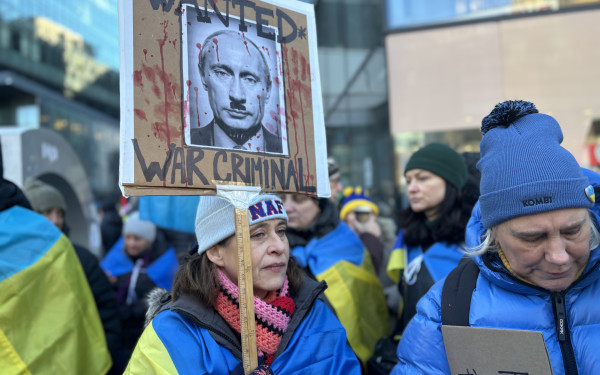Voices of Ukraine: Trilingual Theatre Raises Funds for Ukraine
Centaur Theatre rallies Montreal acting community to raise funds, awareness for Ukrainian war
On May 3, Centaur Theatre hosted a reading of Ukrainian play excerpts to raise funds for humanitarian aid in Ukraine.
Voices of Ukraine was organized and staged by organizers Eda Holmes, Leslie Baker and Michel Marc Bouchard.
The plays read were donated and written by Anna Bagriana, Pavlo Arie, Elena Astasyava, Neda Nejdana, Natalkya Vorozhbyt, Oksana Savchenko, Iryna Harets and Vitaly Bilozir. These writers recommended charities the audience could donate to. Particularly, they encouraged donations for Voices of Children and the Ukrainian Emergency Art Fund, which help children and families and artists impacted by the war respectively.
This event is part of a larger series happening in 18 different countries. Playwrights who are still in Ukraine have donated their texts and forgoed their usual royalties. The goal is to raise funds for humanitarian aid through readings of Ukrainian stories.
People bustled into the Centaur Theatre. The room was filled by the songs of DakhaBrakha; a music group from Kiev that began as a theatre company. The lights dimmed and the music went quiet. Then, actors and organizers filed into the room and sat at the front.
Actors Charles Bender and François Arnaud alternated speaking French and English as they hosted the event. This fulfilled Holmes’ wish to bring together different Montreal communities to help the crisis in Ukraine.
“I’m totally moved by the artists in our community gathering together from both sides of the language divide to give voice to the Ukrainian cause,” said Holmes. Holmes said she was delighted by the presence of members of the French-speaking and English-speaking communities that had gathered that evening.
Eight texts were read throughout the evening in French, English, and Ukrainian. Actors would rise from their seats and join the stage as they read passages that touched on anger as much as lust, war as much as friendship, grief as much as love.
“[The texts] are dealing with Ukrainian history from a Ukrainian point of view. All of the texts that were selected are about the history of war in the country,” noted Baker who in part curated the selection.
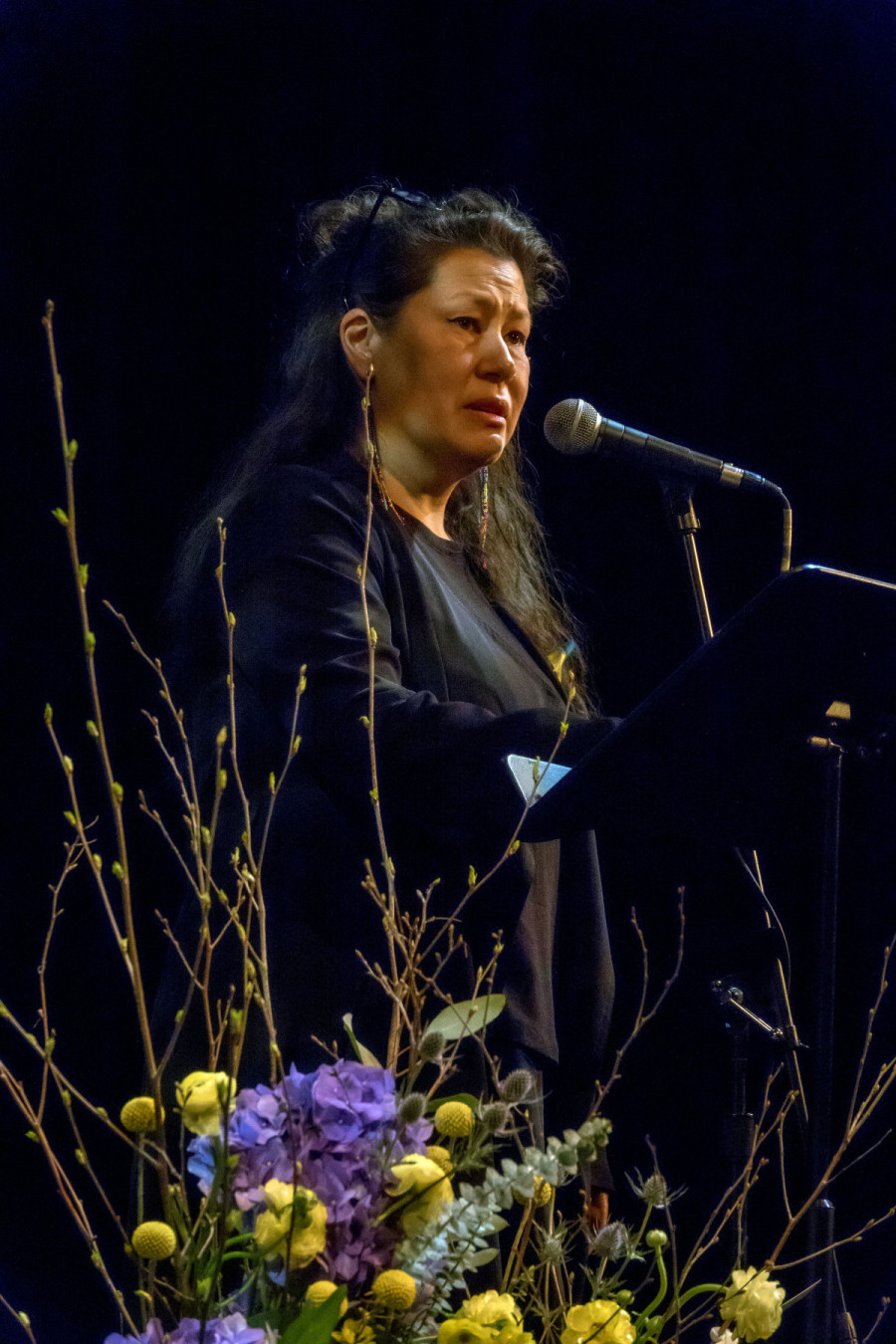
All readings were written in the 2010s. Some cover older events like the effects of Chernobyl in Neda Nejdana’s Les Fugitifs Égarés (2012) and At The Beginning and End of Time (2013) by Pavlo Arie. Others involve a journalist investigating the front line of the Donbass war like Bad Roads by Natalka Vorozhbyt (2017). Some pieces like Planting and Apple Tree by Iryna Harets incorporate unique elements such as a Wikipedia page on apple tree care to discuss the Russian Invasion.
As the actors read, images of the Ukrainian writers were projected onto the screen.
“It was quite powerful to actually see the photos of the playwrights and read their words,” said Julie Tamiko-Manning who read an excerpt of I want to go home by Oksana Savchenko (2022). Tamiko-Manning added that this experience bridged the usual disconnect she feels with the events she encounters on the news and social media.
“We are artists here and they are artists there. I was thinking about how if it were flipped around, artists in other countries are always going to be there for other artists,” said Tamiko-Manning after her performance.
The halfway point of the evening was punctuated by Katherine Palyga, violinist for l’Orchestre Symphonique de Montréal. Palyga played a piece by composer Miroslav Skoryk, one of Ukraine’s national heroes who passed away in 2020.

Gregory Hlady, a Ukrainian actor of international renown, gave a moving speech about his relationship with the war.
“Despite the fact that my daughter and granddaughter of five years old are safe for the moment in Lithuania, I cannot live normally while Ukrainian children die from the Russian bombs,” said Hlady.
For one of the last acts of the evening, all the actors walked onto the stage. They performed one of the more recent pieces written mere weeks ago by Elena Astasyeva titled A Dictionary of Emotions in War Time. Actors and hosts took their turn as they walked to the microphone and read—in French or English—a narrative definition of words commonly used in war time, as well as conversation excerpts between Ukrainian and Russian friends during the war.
Voices of Ukraine ended on a hopeful note with Vitaly Bilozir’s poem about two boys falling in love titled Paper Boy (2022). The poem was read by Anthony Therrien in French, Rahul Ghandi in English, and Kseniya Chernyshova in Ukrainian. This was the only time in the evening that a text was read in all three languages.

